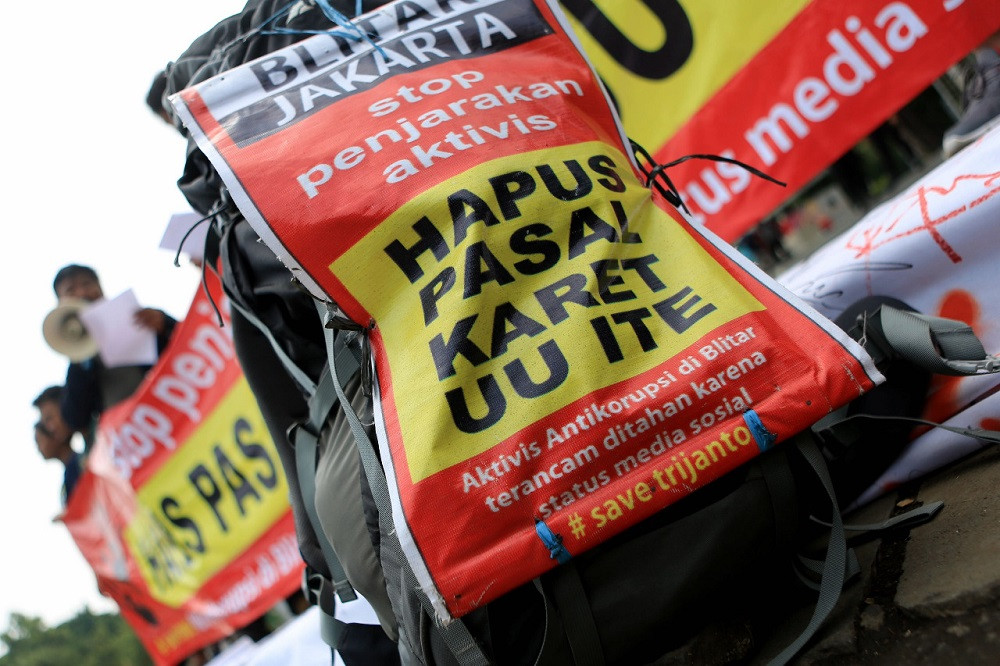Popular Reads
Top Results
Can't find what you're looking for?
View all search resultsPopular Reads
Top Results
Can't find what you're looking for?
View all search resultsHouse approves Jokowi's amnesty request for academic jailed under cyberlaw
Change text size
Gift Premium Articles
to Anyone
 Rallying cry: Members of the Corruption Eradication People’s Committee rally outside the State Palace in Jakarta on Jan. 8, 2019, to demand that the government abolish articles in the Electronic Information and Transaction (ITE) Law that they considered a threat to the freedom of expression. (JP/Seto Wardhana)
Rallying cry: Members of the Corruption Eradication People’s Committee rally outside the State Palace in Jakarta on Jan. 8, 2019, to demand that the government abolish articles in the Electronic Information and Transaction (ITE) Law that they considered a threat to the freedom of expression. (JP/Seto Wardhana)
T
he House of Representatives has approved President Joko “Jokowi” Widodo’s request to grant amnesty to Saiful Mahdi, a lecturer at Syiah Kuala University in Aceh, who was imprisoned last month for defamation under the controversial Electronic Information and Transactions (ITE) Law.
While activists welcomed the decision on Thursday to grant amnesty to Saiful, they emphasized that others were still suffering under the ITE Law, particularly because articles on online defamation were increasingly being used to punish people for expressing their opinions.
“Today [Thursday], Saiful Mahdi was given amnesty by the President, but there are a lot of victims who are still waiting [for a pardon],” ITE Law Victims Community (PAKU ITE) chairman Muhammad Arsyad told The Jakarta Post on Thursday.
“We hope the government and the House will amend the problematic articles in the ITE Law as soon as possible, because we don’t want to request presidential amnesty for every ITE Law case.”
From 2016 to 2020, the Southeast Asia Freedom of Expression Network (SAFEnet) recorded 786 cases involving the law, with 88 percent of the those charged ending up behind bars, Reuters reported.
Read also: Jokowi backs amnesty for professor jailed for whatsapp message
Gadjah Mada University (UGM) constitutional law lecturer Zainal Arifin Mochtar also urged the government to revise the ITE Law, adding that more people would end up seeking amnesty if the controversial articles were left intact.















